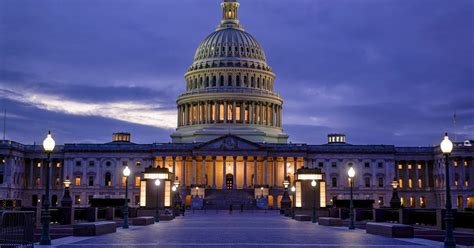
Unlocking the Influence of Policy Institutes on Shaping Political Ideologies
Policy institutes, as silent architects of political landscapes, wield profound influence in our society. In this exploration, we delve into their pivotal role, impactful sway, and enduring challenges.
The Pivotal Role of Policy Institutes
Research and Analysis: These institutes serve as research powerhouses, dissecting intricate issues with data, surveys, and academic studies. Whether it’s climate change or economic disparities, their comprehensive research forms the bedrock for informed decisions.
Policy Recommendations: Backed by rigorous research, they proffer evidence-based policy recommendations to address pressing societal challenges. These recommendations, often a blend of diverse viewpoints, guide policymakers in crafting well-rounded, actionable solutions.
Advocacy and Lobbying: Beyond research, policy institutes are active players in advocacy and lobbying. Through strategic media campaigns, enlightening seminars, and direct engagement with policymakers, they seek to rally support and raise awareness about their proposed policies.
The Mighty Influence of Policy Institutes on Political Ideologies
Shaping Public Discourse: Policy institutes hold the keys to shaping public discourse. By introducing fresh ideas and framing policy debates, they can redirect the spotlight. For instance, research on income inequality can steer conversations toward addressing wealth disparities.
Impact on Political Parties and Leaders: The sway of policy institutes extends to political parties and leaders. Parties may adopt their policy recommendations, and politicians often wield their research to fortify their arguments and campaign promises.
Interaction with Think Tanks and Academic Institutions: Collaboration is key. Policy institutes engage with other think tanks and academic institutions to broaden their knowledge base and embrace diverse perspectives. This collaboration enhances their understanding of complex issues and bolsters their research’s credibility.
Navigating the Ideological Spectrum
Left-leaning Policy Institutes: Advocating for progressive policies, these institutes champion social justice, environmental protection, and income equality. Their research often underscores the role of government intervention in addressing societal challenges.
Right-leaning Policy Institutes: Embracing conservative values, these institutes advocate for limited government intervention and tout free-market solutions. Their research may highlight the benefits of deregulation and the private sector’s role in problem-solving.
Centrist Policy Institutes: Bridging ideological chasms, centrist policy institutes aim for consensus-driven solutions. Their research centers on finding common ground and practical approaches to policy challenges.
Funding and Its Influence
Government Funding: Many policy institutes receive funding from governments to delve into critical policy matters. While this support fuels essential research, it also raises concerns about potential bias.
Private Sector Donations: Private corporations and individuals also play a pivotal role in supporting policy institutes. This funding aligns with the donor’s interests and opens doors to research opportunities. However, it triggers questions about the institute’s objectivity.
Impact on Objectivity and Bias: Critics argue that funding sources can sway objectivity and introduce bias. Some believe that certain institutes prioritize research that aligns with their major funders’ interests.
The Complex World of Criticism and Controversies
Accusations of Partisan Agendas: Policy institutes occasionally find themselves in hot water, accused of advancing partisan agendas. Detractors argue that some institutes tailor their research and recommendations to align with specific political ideologies.
Lack of Transparency: Transparency is crucial for trust. When policy institutes fail to disclose their funding sources and potential conflicts of interest, it sparks concerns and erodes credibility.
Potential Influence on Policy-making: The influential role policy institutes play in public discourse and policy recommendations can cast shadows on policymaking processes. Policymakers may be swayed by the research and advocacy efforts of these institutes.
Real-World Examples
Example 1: Influence of a Left-leaning Policy Institute: Imagine a left-leaning policy institute championing universal healthcare. Their research could sway public opinion, paving the way for healthcare reforms and policy changes.
Example 2: Influence of a Right-leaning Policy Institute: A right-leaning policy institute advocating lower corporate taxes and deregulation might shape conservative political agendas, leading to policies aimed at reducing government intervention in the economy.
Example 3: Centrist Policy Institute’s Impact on Consensus-building: Picture a centrist policy institute focusing on climate change. Their research could foster consensus among diverse stakeholders, spurring collaborative efforts to address environmental challenges.
The Future Beckons for Policy Institutes
Evolving Role in the Digital Age: To remain relevant, policy institutes must embrace technological advancements. Data analytics, digital communication, and social media are their allies in reaching wider audiences and disseminating research.
Addressing Challenges and Adapting to Change: As societal challenges shift, policy institutes must adapt and respond. Collaboration across disciplines and the inclusion of diverse perspectives are the keys to enhancing their problem-solving prowess.
In conclusion, policy institutes wield immense power in shaping political ideologies and public discourse. Their research-backed recommendations steer policymakers and spark crucial debates. However, questions of objectivity, transparency, and influence linger. As the world evolves, policy institutes must evolve with it, harnessing technology to tackle society’s ever-changing challenges.
Learn More:
-
Brookings Institution (URL: https://www.brookings.edu/): The Brookings Institution is one of the oldest and most well-known think tanks in the United States. They cover a wide range of policy areas and provide in-depth research and analysis on various topics. Their website offers a wealth of reports, articles, and publications related to policy research and its impact on political ideologies.
-
Heritage Foundation (URL: https://www.heritage.org/): The Heritage Foundation is a conservative think tank that focuses on promoting conservative principles and limited government. Their website provides insights into conservative policy perspectives and how they shape political ideologies. They offer research, publications, and commentary on a variety of policy issues.
-
Center for American Progress (URL: https://www.americanprogress.org/): The Center for American Progress is a progressive think tank that advocates for progressive policies and ideas. Their website contains research, reports, and analysis that explore how progressive policies and ideologies influence the political landscape.
